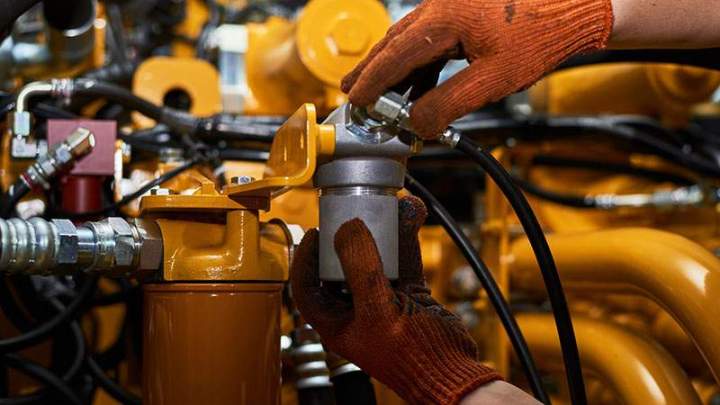What Are the Different Types of Hydraulic Components?

Hydraulic systems are complex networks of specialized parts working in harmony to generate immense power. Understanding these diverse components is key to maintaining and optimizing your machinery's performance. Metro Diesel and Turbo Service breaks down the main types.
Power Generation and Control Components
At the foundation of any hydraulic system are the components responsible for generating and precisely controlling fluid power. The hydraulic pump is paramount, acting as the heart of the system. Various types exist, including gear pumps (simple, robust, and cost-effective for medium pressures), vane pumps (offering good efficiency and lower noise, suitable for medium pressures), and piston pumps (delivering high efficiency and capable of very high pressures, ideal for heavy-duty applications). Each pump type efficiently converts mechanical energy from a prime mover (like an engine or electric motor) into hydraulic energy by displacing fluid. Complementing the pump are control valves, which are critical for directing, regulating, and stopping fluid flow and pressure within the system.
These include directional control valves (determining the path of fluid to actuators), pressure control valves (regulating system pressure to prevent overload or maintain set values), and flow control valves (managing the speed of actuators). The precision of these valves is essential for the smooth and safe operation of hydraulic machinery. Proper selection and maintenance of these components are vital for system efficiency and longevity. Metro Diesel and Turbo Service offers a comprehensive range of these power generation and control components, ensuring optimal performance for your hydraulic applications.
Actuators, Reservoirs, and Filtration Systems
Once fluid power is generated and controlled, it needs to be converted into useful work. This is where actuators come into play. The two primary types are hydraulic cylinders, which provide linear motion (pushing or pulling), and hydraulic motors, which produce continuous rotary motion (driving wheels, conveyors, or winches). Cylinders come in single-acting (push in one direction, return by external force) and double-acting (push and pull in both directions) configurations, while motors can be gear, vane, or piston types, similar to pumps but operating in reverse. Equally important, though less visible, are the hydraulic reservoir and filtration systems. The reservoir serves as a tank to hold the hydraulic fluid, allowing it to cool, and provides a place for air and contaminants to separate.
The filtration system, comprising various filters (suction, pressure, return-line), is crucial for maintaining fluid cleanliness. Contamination from dirt, wear particles, or even water is a leading cause of hydraulic system failure, leading to accelerated wear on pumps, valves, and actuators. By ensuring clean fluid circulates, filters extend the lifespan of all hydraulic components and maintain system efficiency. Metro Diesel and Turbo Service understands the interconnectedness of these parts, providing high-quality actuators, reservoirs, and filtration solutions to keep your hydraulic machinery running flawlessly and reliably.